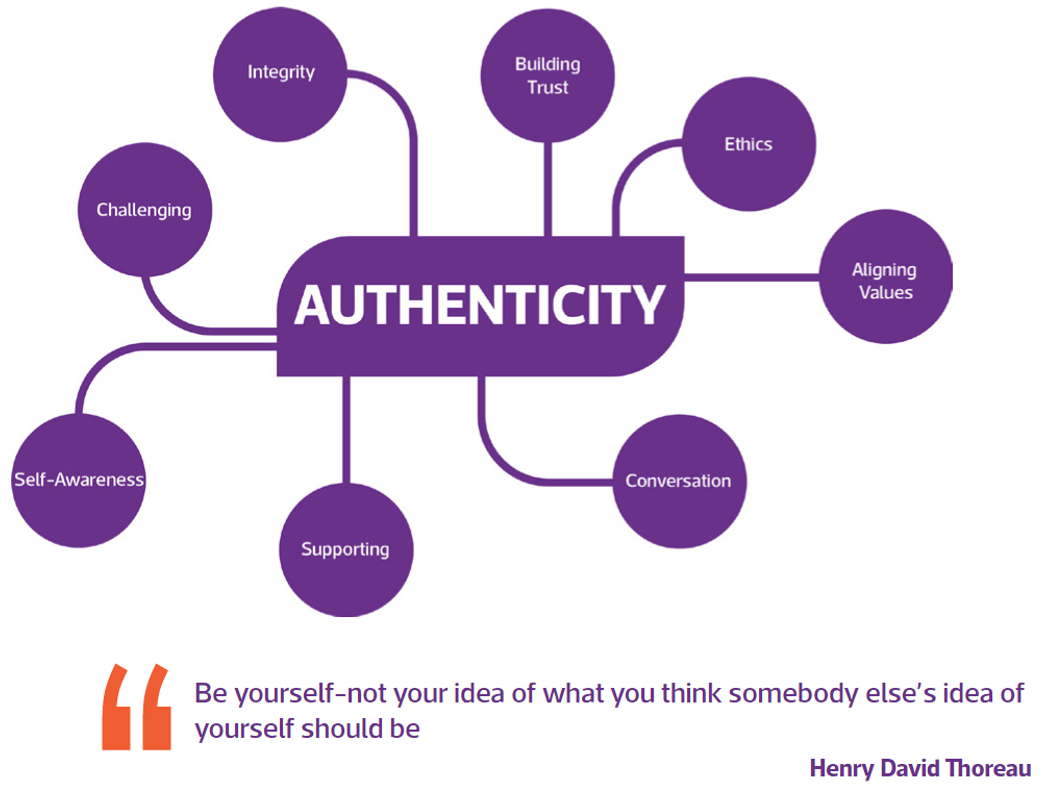If something is described as “Authentic” we know it has been tested, found to be real, and often in the same breath, we see it is something of value to possess. So it is with leadership. Although there has been a renewed interest in authentic leadership since the seminal work of Bill George at the turn of the century, the concept is not a new one, some would even suggest it had its origins in Ancient Greece with the aphorism “know thyself”. Whilst the modern incarnation of authentic leadership began as a theoretical notion of what good leadership should be like, more and more empirical research is finding that organisations and teams with authentic leaders perform better and thrive. So, either because it affects the bottom line or because it is a matter of “doing the right thing” authenticity will improve your leadership.
Why Authentic Leadership?
We live in a knowledge society, where organisational value is no longer entirely dependent upon a command and control leadership of the type which suited production line manufacturing (Gerstein & Friedman, 2017) Employees and colleagues must have agency, and hand in hand with agency, goes free will. Leadership needs followership and creative and intelligent people will only give that to worthy people.
A growing awareness too of the world as an interdependent system where supply chain management and a concern for the environment are atop of many agendas, will leave organisations who break the spirit of the law exposed to scrutiny. The views of statutory bodies to infractions may indeed be less powerful than the force of negative media judgments.
Authentic leadership in this environment is less a choice and more a necessity. When grasped, authenticity means that you will be able to be who you seem to be and there will be no forced fit into a “work” persona.
The Practice of Authentic Leadership
The growing literature seems to have a consensus about how to become an authentic leader. It starts with the Greek concept of “to your own self be true” and includes notions of self-management, balanced judgment and reflexivity – the ability to reflect and act, learning from mistakes.
These somewhat abstract concepts can be better understood with reference to the component elements which represent the action of authenticity.
Authentic leaders are self-aware. They understand how their behaviour impacts on those around them and the culture they create including supporting the creation of a workplace in which people feel safe to contribute, comment on and critique openly where it is right to. Authentic leaders encourage and participate in the organisation’s conversation. This means listening well in addition to communicating clearly everything from strategy to the day to day conversations with colleagues, employees and those external to the organisation. Leaving things unsaid, is often important in conversation so giving an emphasis to what is helpful rather than repeating a well-worn script of negativity.
Values underpin everything we do. A person with integrity finds it extremely diffcult to act contrary to them. To be an authentic leader, you need to understand your core values. For example, it may be your orientation to success, it could be about enjoying healthy competition or having concern for business ethics. Once you understand them you can begin aligning values with those of the organisation. If they don’t fit then that gives you a choice, you can adjust you values or look for an enterprise where there is a closer fit, this is integrity.
An authentic leader is trusted by their colleagues, collaborators and employees. Building trust means doing the right thing consistently and actively modelling them over time. From such a position of strength a leader has the freedom to expect more of themselves and those around them challenging performance to be even better. The whole of the organisation being more than the sum of its parts. When trust is achieved, people will know what to expect and your brand will be real, precious to those who work with you and truly valued.


